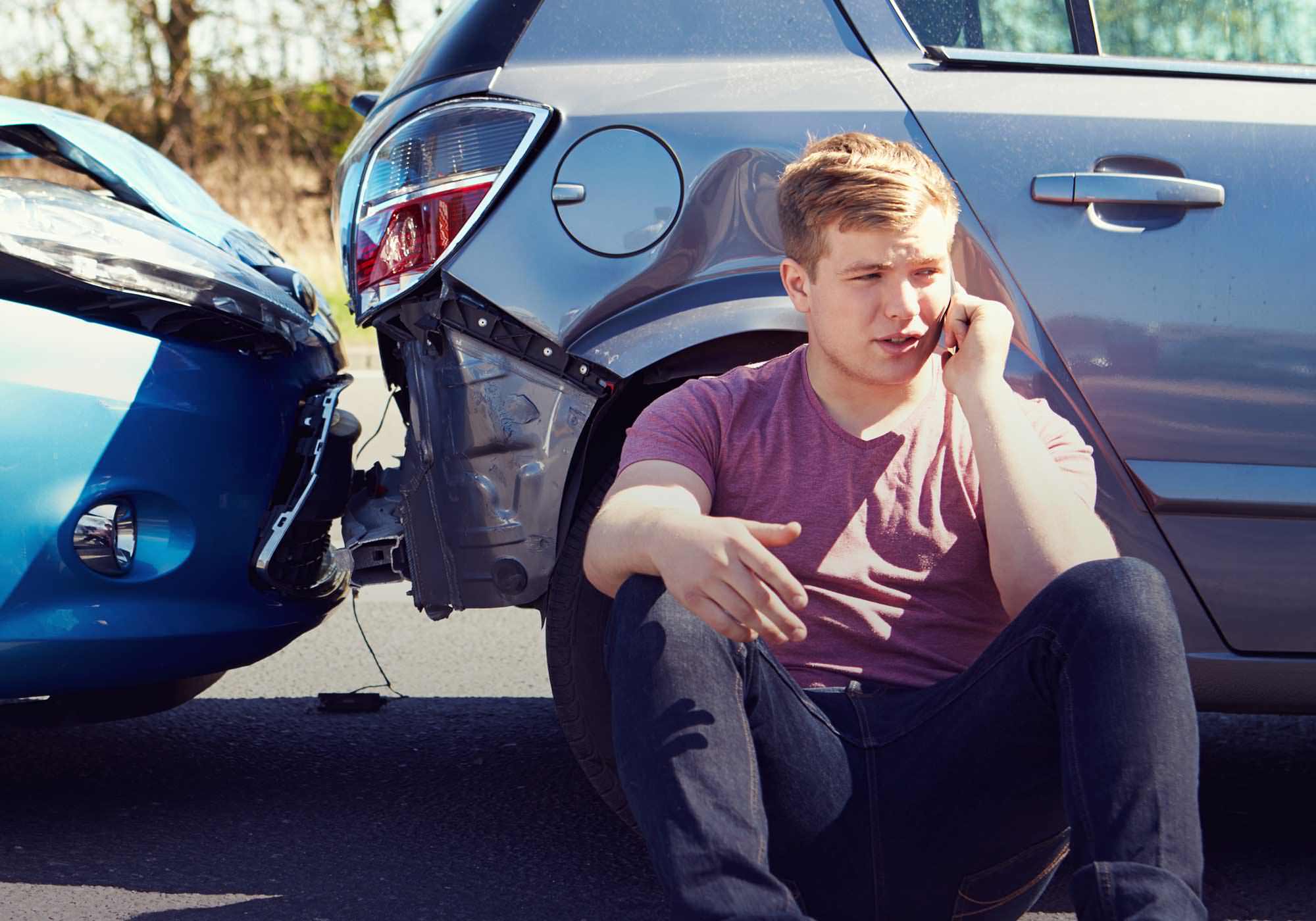Young drivers often question why the cost of their car insurance is so high. Insurers work out their prices by analysing risk, and unfortunately when it comes to young drivers you can’t argue with the statistics – they are at much greater risk of having an accident.
Here we explore the main reasons why young drivers are more prone to accidents. You may want to think about whether you recognise any of these habits in your own driving, so you can improve your own safety on the road and avoid becoming another statistic.
Inexperience
Passing the driving test means you’re officially ready to take to the roads by yourself. However, there are bound to be a number of types of roads, conditions, scenarios involving other drivers and obstacles that you’ve never encountered before. This inexperience on the road is one of the key reasons why you’re more vulnerable to accidents.
One of the most significant elements is anticipating hazards – for example an animal may run out in front of you and you might panic, as you haven’t ever had to deal with this before. Why not take another look over the Highway Code, so it’s fresh in your mind in case you need to act quickly when you’re out on the road.
If you feel like you would benefit from some more advanced training in order to experience a wider range of driving scenarios with the guidance of an instructor, perhaps consider taking a pass plus course. You could help improve your confidence on the road and even save money on your car insurance too.
Risk-taking
While most young drivers are likely to be sensible when taking to the road for the first time, it’s been proven that some will take risks such as not wearing a seatbelt, cutting in and out of traffic, speeding to impress passengers and performing other dangerous manoeuvres.²
Driving at night
All drivers are more likely to crash when driving at night, but young drivers are most at risk because they drive at night more often than older drivers. Research by our sister company insurethebox showed that 19-23 is the age group that drives the highest percentage of their total miles at night,³ when:
- Vision is decreased
- Hazards are not as obvious
- You might be in a hurry to get home
Another factor, as well as overall inexperience, is inexperience driving at night.⁴ If you feel like you need more practice, there’s no harm in carrying out a few journeys at night with an experienced driver, building up to driving on country roads, motorways and other roads that may be slightly more daunting with less visibility.
Drink and drug driving
Statistics show that sadly around one third of those killed or seriously injured in a drink driving accident in 2012 were aged between 16-24.⁵ Drink driving reduces co-ordination, slows down reactions, and impairs judgement of speed, distance and risk. Read more about the dangers of drink driving on our sister company’s blog site.
Distracted driving
As a young driver, an initial lack of confidence and experience driving alone can mean that distractions have more of an impact on your ability to drive safely and react to sudden hazards on the road. These include:
- Using mobile phones
- Eating, drinking and smoking
- Talking to passengers
- Using gadgets such as a sat nav or radio.⁶
It’s understandable that as a new driver who’s just got the full licence, you’re keen to take your friends out for a spin. But passengers can often cause distractions especially when you’re not fully familiar with the car and the various driving manoeuvres. We know it’s hard to stand up to peer pressure but it’s really important that any passengers you agree to take understand that you’re still getting to know the roads and you need your full concentration when driving.
Check out this powerful advert which explains how peer pressure can lead to a lack of safety on the road
How to keep yourself safe on the road as a young driver
It takes time to build up experience on the road, but there are a few simple steps you can take to keep yourself, your passengers and other road users safe:
- Drive at a speed that is appropriate for the road and conditions
- Avoid harsh acceleration and braking, except in an emergency
- Make sure your car is in a roadworthy condition, for example check your tyre tread depths, lights and engine oil regularly.
- Take breaks on long journeys – don’t drive for longer than 2.5 hours at a time and take a break for at least 20 minutes.
- Don’t give in to peer pressure – don’t let any passengers encourage you to drive in an unsafe way.
Sources:
[1] https://www.gov.uk/government/uploads/system/uploads/attachment_data/file/269601/rrcgb-2012-complete.pdf
[2] http://www.brake.org.uk/info-resources/info-research/road-safety-factsheets/15-facts-a-resources/facts/488-young-drivers-the-hard-facts
[3] http://www.insurethebox.com/sites/default/files/documents/WhyacurfewforyoungdriverswouldbewrongfortheUK-18April2013.pdf
[4] https://www.abi.org.uk/~/media/Files/Documents/Publications/Public/Migrated/Motor/Improving%20the%20safety%20of%20young%20drivers.ashx
[5] https://www.gov.uk/government/uploads/system/uploads/attachment_data/file/269601/rrcgb-2012-complete.pdf
[6] http://www.rospa.com/roadsafety/adviceandinformation/driving/driver-distraction.aspx
